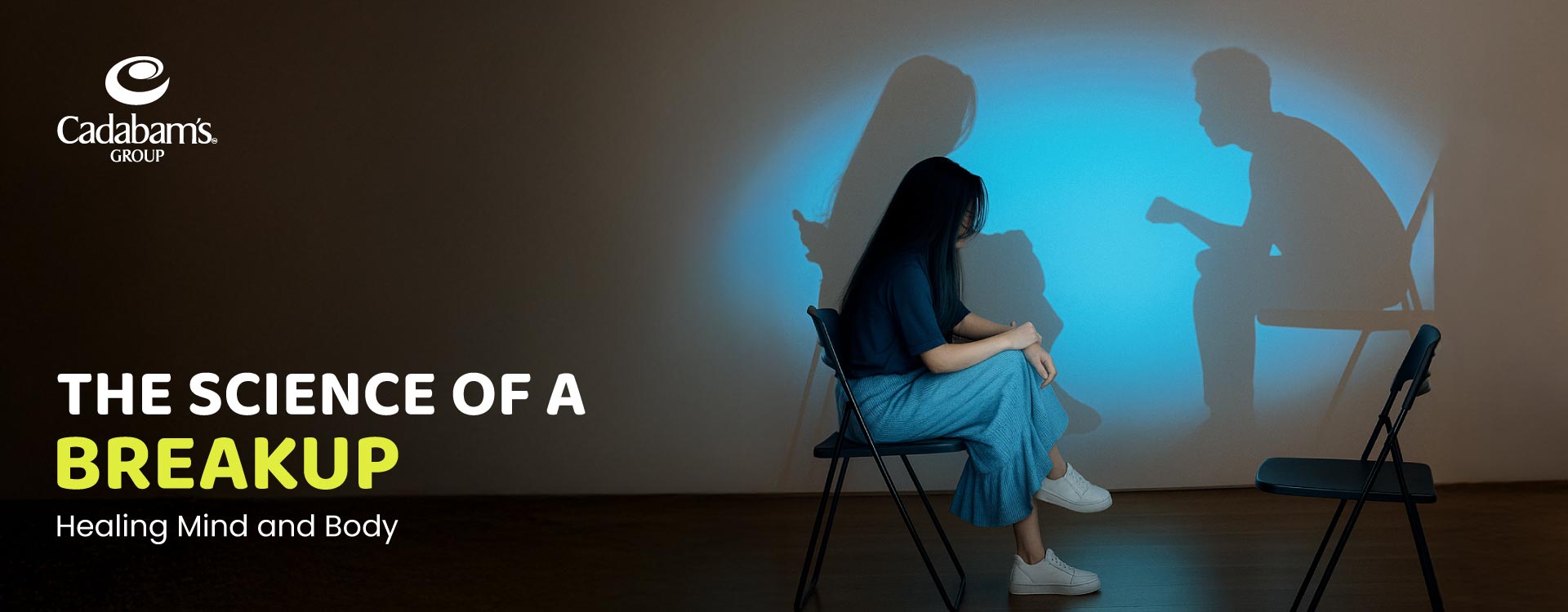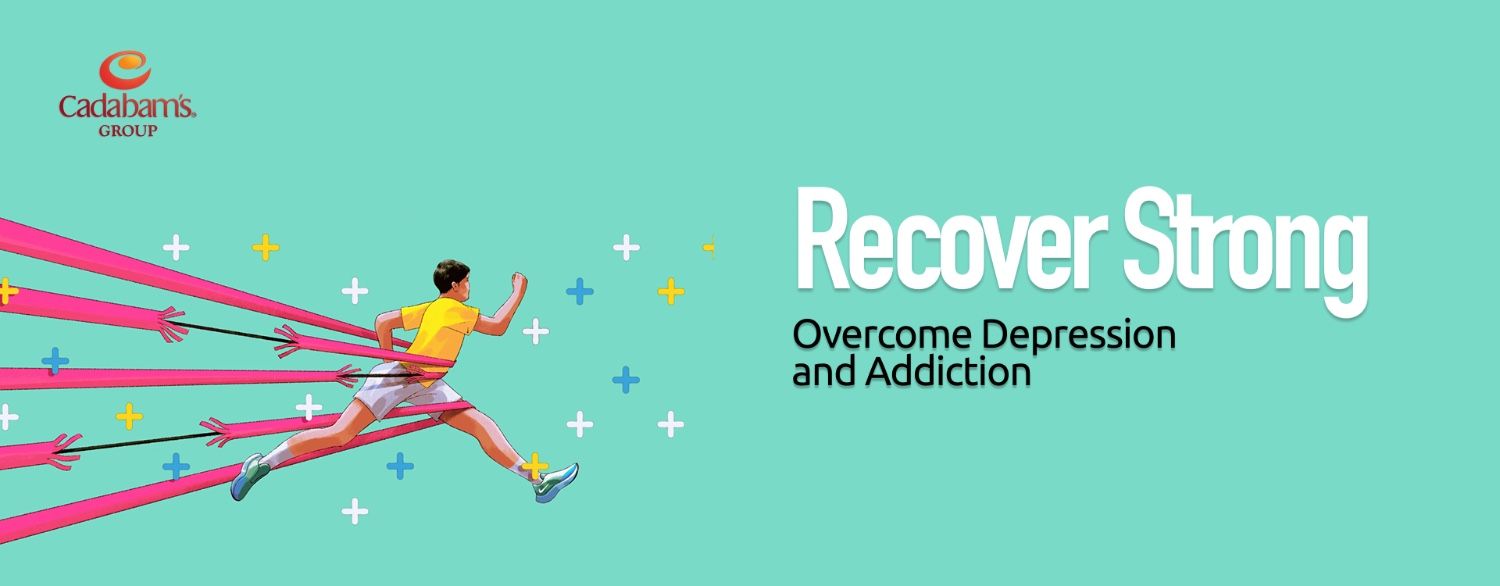The Science Behind A Breakup: How Your Body Reacts
When one thinks of a breakup, it's common to imagine the emotional toll it takes. However, the science behind a break up reveals that it's not just your heart that's affected, but your entire body.
Just like how love can produce a rush of feel-good hormones, a break-up can trigger a cascade of stress hormones like cortisol. This sudden shift can lead to physical symptoms such as sleep disturbances, appetite changes, and even physical pain or tightness in the chest.
A break-up, especially from long-term relationships, can be as physically jarring as it is emotionally.
How Does a Breakup Impact Your Emotionally?
Break-ups, regardless of the reasons, can lead to a whirlwind of emotions. It's akin to mourning the loss of a romantic partner from one's life. Feelings of sadness, anger, guilt, and confusion often intermingle, leading to negative thoughts and self-doubt.
Many find themselves ruminating on "what ifs" and "whys," seeking closure. Research suggests that such emotional turmoil, especially if not addressed, can linger and even lead to depressive symptoms.
This is where break-up therapy can be invaluable, providing guidance to navigate through this emotional maze.
How Does a Breakup Impact Your Psychologically?
On a psychological level, a break-up challenges one's sense of identity. Especially in long-term relationships, individuals often see themselves as part of a unit. When that unit dissolves, questions like "Who am I without this person?" emerge.
This identity crisis, coupled with the onslaught of negative thoughts, can lead to decreased self-worth and increased anxiety. It's not uncommon for individuals to adopt maladaptive coping mechanisms or avoid future romantic endeavors out of fear.
Understanding the profound psychological impact of a break-up underscores the importance of seeking therapy or counseling to rebuild and redefine oneself post-separation.
How Does a Breakup Impact Your Physiologically?
A breakup doesn't just pull at the heartstrings; it affects our very physiology. Science offers insights into how our bodies react to a relationship breakup. The initial stress can cause a surge in adrenaline, leading to increased heart rate and blood pressure.
This is often why those going through a break-up might feel physical pain, manifesting as a heavy heart or tightness in the chest, popularly termed a "broken heart." Changes in appetite, either eating too much or too little and disrupted sleep patterns are also commonly reported.
The chronic stress of heartbreak, if not addressed, can impact the immune system, making one more susceptible to illnesses. Engaging in breakup counselling or therapy and practicing self-care become pivotal in ensuring that the body can recalibrate and heal from this physiological turmoil.
Things to Know While Going Through a Breakup
Experiencing a break-up can feel like navigating through a storm without a compass. However, understanding what a break-up is and the mental health implications can provide clarity. Firstly, it's essential to acknowledge the pain without judgment; it's a natural response to losing a significant romantic partner.
Lean on family and friends for support. Remember, it's okay to seek break up therapy or online breakup counseling to understand and process your emotions better.
Reframe Your Thinking
Post-break-up, the mind often spirals into a series of negative thoughts, which only aggravates the pain. To mitigate this, one needs to consciously reframe their thinking. Instead of dwelling on the loss, channel your energy into finding lessons and growth from the experience.
Instead of asking "Why did this happen to me?", consider pondering "What can I learn from this?". Online counseling can provide tools and techniques to guide this reframing process, helping individuals emerge from the shadow of a relationship breakup with renewed strength.
Do Not Feed Your Emotional Monster.
In the aftermath of a break-up, emotions run high, and it's easy to feed these feelings with more negativity, further amplifying distress. This "emotional monster" thrives on overthinking, isolation, and unhealthy coping mechanisms.
It's crucial to starve this monster by engaging in positive activities, practicing self-care, and seeking professional help if needed. Break-up therapy can be especially beneficial in recognizing and breaking destructive emotional patterns, guiding one towards healing.
Digital Detox
In today's digitally connected world, a break-up extends to the online realm too. It's not uncommon to be tempted to check an ex's social media, leading to further emotional turmoil. To truly heal, consider a digital detox.
Unfriend or mute them on social platforms, and resist the urge to check their updates. Redirect this online time to explore mental health resources, join supportive communities, or even indulge in uplifting content.
Will Time Heal All Wounds?
The age-old adage suggests that time is the ultimate healer. While time does offer perspective, merely waiting for the pain to subside might not be the most proactive approach.
It's essential to actively engage in healing, be it through connecting with family and friends, seeking therapy after a breakup, or investing in personal growth.
Remember, while time provides distance, intentional actions and practices catalyze genuine healing and transformation.
Different Break up Stages Stages One Might Experience
Denial: The journey of processing a breakup often starts with an unexpected companion: denial. As our minds grapple with the overwhelming hurt, we find solace in the belief that the break-up isn’t final.
This mental cushion convinces us that soon everything will fall back into place, and the waves of change will retreat. It's like a protective mechanism, ensuring we process the pain at our own pace, where we might momentarily live in a world where the relationship still flourishes.
Anger: As reality starts to sink in, hurt often masquerades as anger. A whirlwind of emotions engulfs us, where blame becomes a comforting cloak. We might find resentment towards our partner, the universe's twisted plans, or even the circumstances that we believe pushed us towards this painful ending.
This anger, while intense, is just another layer of our coping mechanism, giving voice to our hurt.
Bargaining: In our quest to find answers, we enter the realm of "what could have been." The mind races through countless scenarios, trying to rewrite the story, questioning our actions and decisions.
The hope here is to unearth some solution, a magical combination of words or actions that might've saved the relationship. It's a stage where we confront our vulnerabilities, wondering if altering a step might have painted a different outcome.
Depression: As the gravity of the situation becomes undeniable, a cloak of despair might descend. The emotional turmoil might seem endless, and the world, a shade grayer. It's a phase where the weight of loss feels almost tangible, leading to feelings of disconnect, fatigue, and a bleak outlook towards the future.
The optimism of moving forward seems buried under the memories of a relationship that once was.
Acceptance: The dawn after the darkest night is acceptance. Here, while the past might still tug at your heartstrings, it no longer chains you down. The acknowledgment that the relationship has ended brings with it a newfound clarity.
The weight of grief begins to lift, making space for new beginnings. There might still be moments of melancholy, but they no longer overshadow the journey ahead.
How to Regain Your Emotional Wellbeing?
Navigating the aftermath of a breakup can be one of life's most challenging episodes. As the weight of "what is a breakup" truly starts to sink in, one might find themselves entangled in a web of negative feelings and memories.
However, regaining emotional wellbeing is an attainable feat, and often, it begins with seeking the right support. Break-up therapy, a specialized form of counseling, has emerged as a beacon of hope for many.
Research shows that engaging in breakup therapy can significantly accelerate the healing process, guiding individuals as they wade through the mire of past romantic relationships. Through sessions, individuals learn to process their emotions, redefine their identity outside of the relationship, and lay the foundation for a brighter, more fulfilling future.
It's essential to remember that, like all wounds, the pain from a breakup requires time and care to heal. By actively addressing negative feelings and seeking guidance, one can find their way back to emotional equilibrium, eventually emerging stronger and more self-aware.
.webp)







